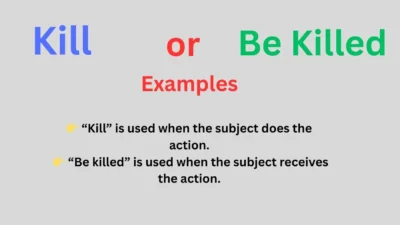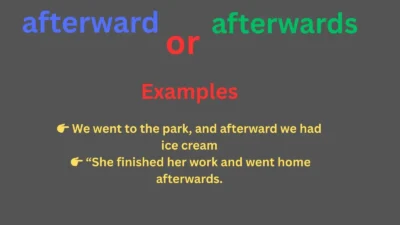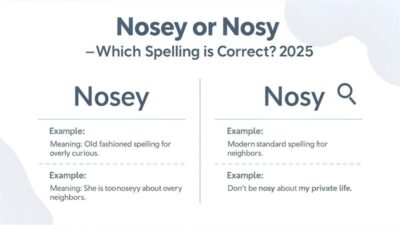I’ve often stopped mid-sentence, wondering whether to write “in regard” or “in regards.” It’s a small phrase, but it causes big confusion.
If you’ve faced the same, you’re not alone—I’ve seen how this mix-up affects even professional writing.
Knowing when to use “in regard” or “in regards” can make your message sound clear and confident.
Let’s fix this once and for all and make your writing shine. ✍️
In Regard or In Regards – Quick Answer
The correct phrase is usually “in regard to”, not “in regards to.”
- ✅ Correct: I am writing in regard to your application.
- ❌ Incorrect (formal): I am writing in regards to your application.
That said, “best regards” (plural) is correct when used as a sign-off in emails or letters.
The Origin of In Regard or In Regards
The word “regard” comes from the Old French regarder, meaning to look at or consider.
- “In regard to” developed in the 15th century to mean concerning or about.
- The plural “regards” evolved later, often used to express good wishes: Give my regards to your family.
The confusion arises because people often extend the plural form (“regards”) into the prepositional phrase, which is grammatically unnecessary.
British English vs American English Spelling
While spelling is not the main issue here, usage patterns differ slightly between the US and the UK. Americans are more likely to tolerate “in regards to” in informal settings, while British English strongly favors “in regard to.”
Comparison Table
| Phrase | Usage in US English | Usage in UK English | Formality Level |
| In regard to | Preferred in formal writing | Strongly preferred | Formal |
| In regards to | Common but informal | Rare and considered wrong | Informal |
| Best regards | Standard closing in letters | Standard closing in letters | Neutral |
Which Spelling Should You Use?
- If writing for US readers: Use in regard to for formal contexts. In regards to may pass casually but is not preferred.
- If writing for UK/Commonwealth readers: Always use in regard to.
- If writing globally: Stick with in regard to for clarity and professionalism.
Common Mistakes with In Regard or In Regards
- ❌ In regards of → ✅ In regard to
- ❌ With regards to → ✅ With regard to
- ❌ In regards for → ✅ In regard for
- Mixing up “regard” (about) with “regards” (greetings).
In Regard or In Regards in Everyday Examples
- Emails:
Correct: I’m writing in regard to your proposal.
Closing: Best regards, Sarah - News:
The new law is being debated in regard to environmental impacts. - Social Media:
Quick question in regard to the new update. - Formal Writing:
The report was submitted in regard to the committee’s request.
In Regard or In Regards – Google Trends & Usage Data
Google Trends shows “in regard to” dominates globally, especially in the UK, Canada, and Australia. In the US, “in regards to” appears more often in casual searches but remains secondary in formal writing.
Table: Popularity by Country
| Country | Preferred Form | Secondary Form |
| United States | In regard to | In regards to |
| United Kingdom | In regard to | — |
| Canada | In regard to | In regards to |
| Australia | In regard to | — |
FAQs about In Regard or In Regards
Q1. Is “in regards to” always wrong?
No. It’s common in speech but not recommended in formal writing.
Q2. Can I say “with regards to”?
No. The correct form is “with regard to.”
Q3. Why do people add the “s”?
Because of influence from “best regards” and plural greetings.
Q4. Which is more professional?
“In regard to” is always the more professional choice.
Q5. Is “regards” ever correct?
Yes, in closings (best regards) or when sending greetings (Give my regards to John).
Q6. What can I use instead of “in regard to”?
Try “about,” “concerning,” or “regarding.”
Q7. Do grammar checkers flag “in regards to”?
Yes, many tools suggest changing it to “in regard to.”
Conclusion
The confusion between “in regard” and “in regards” comes from overlapping word history and everyday usage.
While both forms appear in English writing, “in regard to” is the correct and professional choice, especially in formal settings.
The plural “regards” should only be used in greetings, email closings, or when sending best wishes.
If you’re writing for a global audience, using the singular form keeps your communication clear, polished, and universally accepted.
Casual conversations may tolerate “in regards to,” but careful writers and professionals should stick with “in regard to.”
By applying this rule, you’ll avoid common mistakes, improve your writing credibility, and leave no doubt about your grammar skills.

Hi, I’m Jason Carter, the author behind GrammarNestly.com.
I’m a grammar expert with a passion for helping readers understand the English language in a simple and practical way.
I love breaking down confusing grammar rules and turning them into easy, everyday lessons that anyone can follow.



